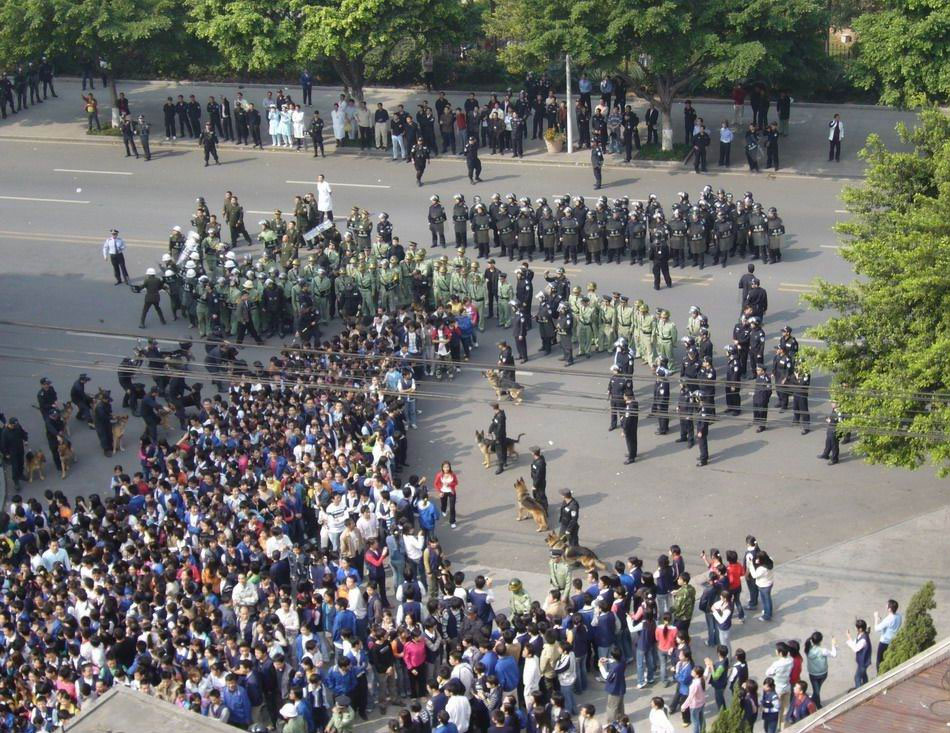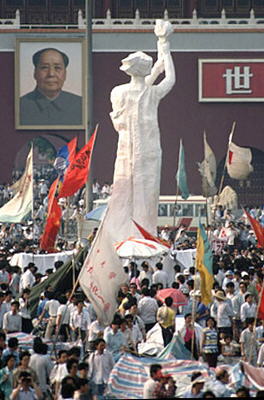Chinese Revolution
Pamphlet: Capitalism and workers’ struggle in China (revised edition)

[For more on China, click HERE.]
By Chris Slee
Preface to the revised edition (2011)
June 6, 2011 – Links International Journal of Socialist Renewal -- There are a number of changes in this edition compared to the first edition (Resistance Books 2010). Most of these changes merely expand on points made in the original, supplying more detail in the text and/or the footnotes. Others take account of new developments in the year since the first edition was published.
The biggest change is in the discussion of the Great Leap Forward, which has been significantly expanded and rewritten. I felt this was necessary for two reasons. First, I wanted to acknowledge that natural disasters as well as mistaken policies played a role in the reappearance of famine in 1959-61. Second, I wanted to explain in more detail what the policy errors were, and why I consider that Mao was largely responsible for them.
* * *
Tariq Ali on Mao Zedong and communism in China
"Mao images are for sale, popular in China and not just with tourists, hi
China: In who's interest does the state serve?

China today: socialist or capitalist?
November 13, 2009 -- Links International Journal of Socialist Renewal has published a number of articles on the Chinese Revolution and the subseque
China: Youth and the Cultural Revolution

For more on the Chinese Revolution, click HERE.
People's Republic of China at 60: socialist revolution, capitalist restoration

[Click HERE for more analysis of the Chinese Revolution and its evolution.]
By Chris Slee
September 23, 2009 -- October 1 will mark 60 years since Mao Zedong proclaimed the creation of the People's Republic of China. This followed the victory of the People’s Liberation Army, led by the Communist Party of China (CCP), over the US-backed Kuomintang (Chinese Nationalist Party, KMT).
In 1921, when the CCP was founded, China was in chaos. Western intervention — military, economic, political and cultural — had destroyed or undermined traditional Chinese institutions. New, stable institutions had not been created. Various imperialist powers grabbed pieces of Chinese territory.
Some modern industry was established, mainly in the coastal cities. But most Chinese people were peasants, heavily exploited by big landowners.
People's Republic of China at 60: Maoism and popular power, 1949–1969

Youth demonstrate during the Cultural Revolution.
[Click HERE for more analysis of the Chinese Revolution and its evolution.]
By Pierre Rousset
With the proclamation of the People’s Republic of China on October 1, 1949, the Chinese Communist Party (CCP) found itself at the head of a country three times larger than Western Europe, with a population of some 500 million. The internal situation was favourable to the revolutionary regime. At the end of a long series of civil and foreign wars, the population sought and relied on the new leaders to achieve peace while the ongoing people’s mobilisation opened the way for a deep reform of society.
People's Republic of China at 60: 1925–1949 -- Origins of the Chinese revolution

Suffering and struggle in rural China

Will the Boat Sink the Water? The
Life of Chinese Peasants.
By Chen Guidi and Wu Chuntao.
50 years after: The tragedy of China’s `Great Leap Forward'
April 21, 2009 – Socialist Voice – On October 1, the People’s Republic of China will mark the 60th anniversary of its foundati

By Martin Hart-Landsberg
Against the Current -- Interest in the post-1978 Chinese market reform experience remains high and for an obvious reason: China is widely considered to be one of the most successful developing countries in modern times. The Chinese economy has recorded record rates of growth over an extended time period, in concert with a massive industrial transformation. Adding to the interest is the Chinese government's claim that this success demonstrates both the workability and superiority of "market socialism."
There are those on the left who share this celebratory view of the Chinese experience, believing that it stands as an effective rebuttal to the neoliberal mantra that still dominates economic thinking. Therefore, they encourage other countries to learn from China's gradual, state controlled process of marketization, privatization, and deregulation of economic activity. A small but significant number share the Chinese government's view that China has indeed pioneered a new type of socialism.
